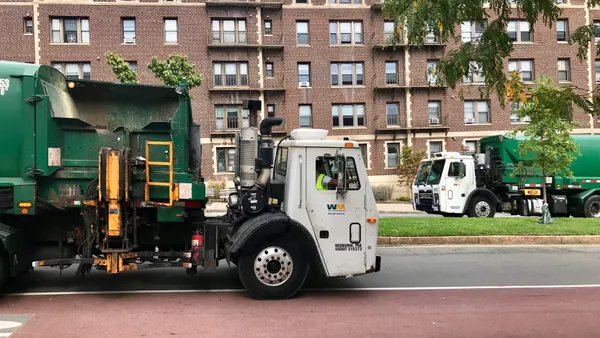Dive Brief:
- Senators have yet to reach an agreement on the long-term fate of the Renewable Fuel Standard (RFS), as reported by Politico's Morning Energy. Sen. Ted Cruz told Politico that he had a hold on nominee Bill Northey for an undersecretary position in the United States Department of Agriculture over the issue, but sees "real progress" in coming to a solution that helps biofuel producers and oil refiners.
- Cruz is reportedly planning to propose a cap on the price of Renewable Identification Numbers (RINs), a move that may conflict with the law's intent. A spokesperson for Iowa Sen. Chuck Grassley told Politico the senator's priority was "the integrity of the RFS." Iowa Sen. Joni Ernst's office told Politico the same — their top priority is upholding the "spirit and the letter of the RFS."
- Cruz's office has not offered a timeline for when his proposal could be introduced. His office did not respond to a request for comment.
Dive Insight:
RINs act as the "currency" of the RFS, and putting a cap on their prices could harm biofuel producers. For the waste industry, that means producers of landfill gas and biogas from digesters could receive less credit for the energy they produce. Some finalized volumes under the RFS for 2018 are already lower than 2017 volumes, which could especially impact landfill gas projects, municipal wastewater treatment facility digesters and agricultural digesters, which are all approved as cellulosic biofuel.
President Donald Trump has previously expressed his support for the RFS and has said that his office would work with stakeholders to find a "mutually agreeable path forward." Environmental Protection Agency Administrator Scott Pruitt has also highlighted anaerobic digestion programs before.
At the same time, Pruitt has told Congress that he sees issues of fraud and enforcement with the RFS. He also expressed concern with the fluctuating prices of RINs, a position that could make the administrator sympathetic to Cruz's yet-to-be-proposed price cap. It is worth noting that some Democratic lawmakers have shared concerns about the RFS, leaving the door open for bipartisan negotiation on revamping the program.











